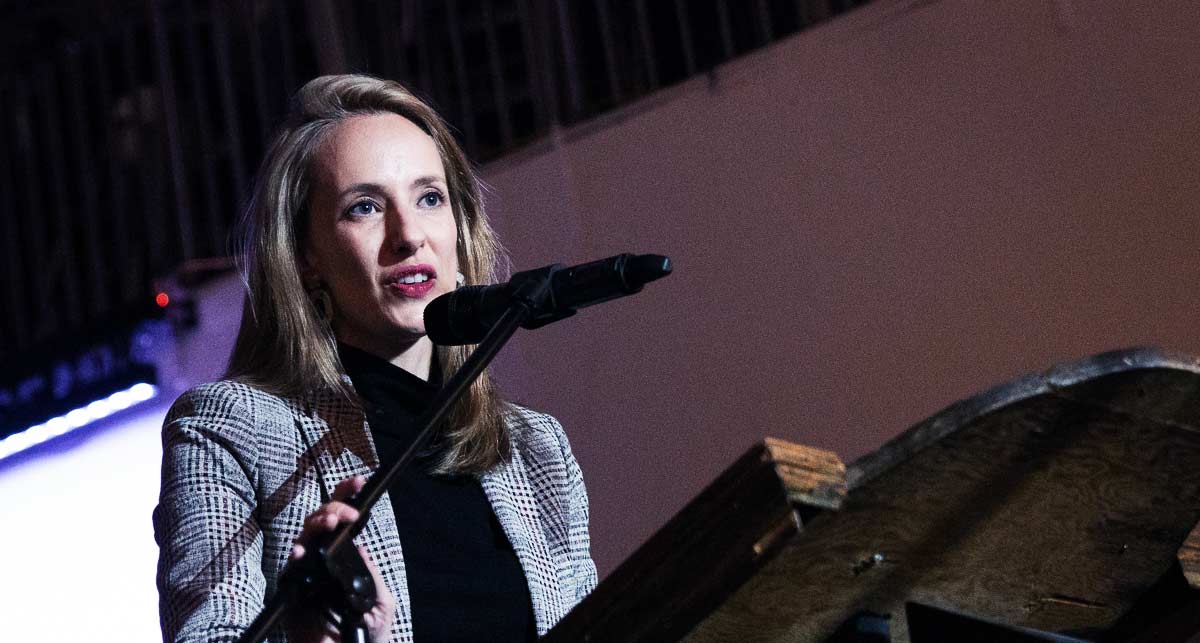I’m writing this on an aeroplane flying back from Toronto, where I was attending a party thrown by Quillette, an online magazine. Canada might seem like a long way to go for a social gathering, but I’ve been working at Quillette for almost a year and hadn’t yet met the editor-in-chief, Claire Lehmann.
Claire is quite something. She was doing a graduate degree in psychology at the University of Adelaide when she became disillusioned by the lack of viewpoint diversity in her field. There’s no hard data on the ratio of left-wing to right-wing academics in Australia, but it’s probably the same as it is in America, where registered Democrats outnumber registered Republicans in psychology departments by 17.4 to one. That’s not an error. In fact, psychology is less one-sided than some other subjects, such as history, where the ratio is 33.5 to one. But instead of bellyaching about this ideological monoculture, Claire decided to do something about it. She dropped out of graduate school and set up Quillette.
The idea was simple: to create a forum in which academics and journalists are free to write what they really think about controversial subjects, such as the source of gender differences, the prevalence of sexual harassment, the history of colonialism, the rightness or wrongness of ‘cultural appropriation’, the causes of racial outcome disparities, and so on.
Claire describes herself as a classical liberal, but there’s no requirement on the contributors to toe an editorial line. All she asks is that the pieces be well-argued, scientifically-literate and evidence-based. Quillette is often dismissed by its detractors as ‘alt-Right’, but the typical contributor is a middle-aged social scientist who has always thought of him or herself as progressive, but who is now regarded as an out-and-out reactionary by their younger colleagues because they refuse to accept the post-modern, neo-Marxist dogma of the Social Justice Left.
For instance, on Monday Quillette published a 12,700-word essay by the Harvard psychologist Steven Pinker responding to critics of his most recent book, in which he defends the values of the Enlightenment. Believe it or not, standing up for science, reason and progress is considered ‘problematic’ by large swathes of academics and intellectuals, who think that documents like the Declaration of the Rights of Man are embodiments of ‘white privilege’.
I’m sure it will strike some readers of CapX as extraordinary that defending liberal values such as universal suffrage and equal rights should be classified as ‘alt-Right’. But the ‘Overton window’ among the university-based intelligentsia and their outriders in the upper echelons of the media has shifted so far to the Left in the past five years that people like Steven Pinker have found themselves unwitting combatants in the culture war.
Quillette has become a kind of safe space for scholars and intellectuals who want to discuss the problems afflicting liberal democracies – such as growing inequality, the ongoing immigration crisis and the toxic rise of identity politics – without blaming everything on the sins of straight white men and ‘systemic racism’. It’s not an exaggeration to say that no two contributors agree on what the best solutions to these problems are, but they all agree on the best method of diagnosing their causes, which is to engage in dispassionate, empirical analysis.
At first, Quillette didn’t attract much attention and after two years Claire was thinking of shutting it down. She had two young children by then and overseeing the site was a lot of work. She only had one person to help – a British journalist called Jamie Palmer whom she’d met on Twitter. Then, in August 2017, she published some short pieces by four psychologists – two of them professors – defending James Damore, the software engineer who’d just been fired by Google for daring to suggest that gender differences are not entirely socially constructed.
None of them said anything particularly inflammatory, just that Damore’s understanding of the science, which he’d summarised in his infamous ‘memo’, was basically correct. Within hours of the articles being published, the website crashed, probably as a result of a denial-of-service attack. But when it came back online, many more people knew about Quillette. It suddenly became the go-to place for the intelligent lay person who wants to find out what the alternative is to the dominant, ‘woke’ orthodoxy on a range of subjects. What CapX is to public policy, Quillette is to cultural politics.
Since then, Quillette has grown exponentially and it now attracts over a million unique visitors a month. That’s more than most well-established publications. In addition to Jamie Palmer, the editorial staff now includes the Canadian journalist Jonathan Kay and the Swedish reporter Paulina Neuding. Claire hired me as a part-time editor last year when I was clinging to the wreckage of my career following my defenestration from public life.
The site has consistently defended people who’ve been hounded out of their professional roles by outrage mobs, often for nothing more serious than breaching politically correct speech codes, and there were about half a dozen of us at the party in Toronto. Sharing war stories with these fellow outcasts was one of the highlights of the trip. It was like a support group for people who’ve been publicly shamed – Apostates Anonymous.
Claire was delightful in person. She has become one of the stars of the Intellectual Dark Web – Princess Leia to Jordan Peterson’s Luke Skywalker – but her overnight celebrity hasn’t gone to her head. She’s friendly and down-to-earth with a steel core of integrity. In the ever-escalating culture wars, in which the future of so many of our liberal institutions and traditions are at stake, she is a rebel commander, leading from the front. It’s an honour to serve as one of her adjutants.


